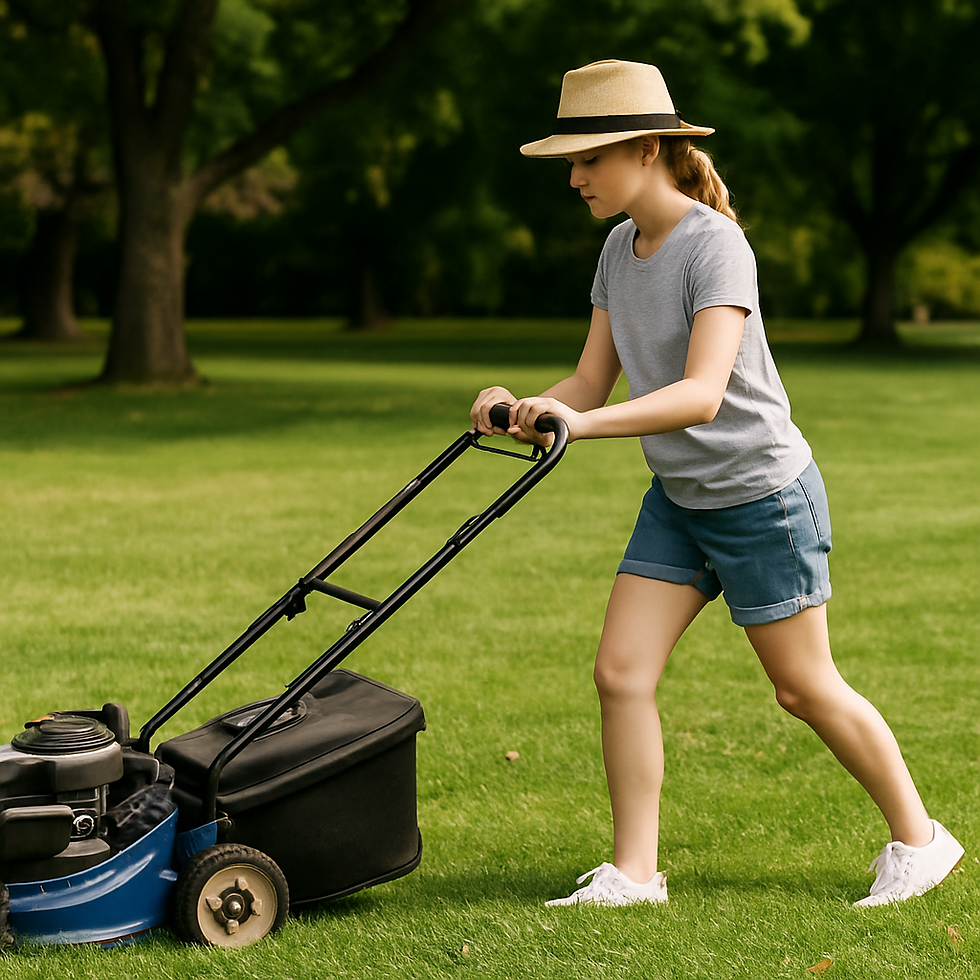Summer Side Hustles and the IRS: What You Need to Know Before You Get Paid
- Gregg Jaffe

- Aug 1, 2025
- 3 min read

As temperatures rise, so does the appeal of picking up extra income. From tutoring and landscaping to freelance design and weekend event gigs, summer side hustles are everywhere. But before the first payment hits your Venmo or Cash App, it’s important to understand how these earnings affect your taxes.
Even a quick job for a neighbor or a few hours a week running errands can carry tax implications. The IRS still wants to know about that income—and failing to report it accurately can cause trouble down the line.
All Income Is Reportable (Even Cash and Apps)
One of the most common myths about side gigs is that small or infrequent payments "don’t count." In reality, all income is reportable unless specifically excluded by the IRS. That includes payments received through platforms like Venmo, PayPal, Cash App, or Zelle for services you provide.
Even if you don’t receive a 1099 form, it’s still your responsibility to report that income. Payment platforms are increasingly required to share data with the IRS, and mismatches between their records and your return can result in penalties or audits.
Understand the $600 Rule (and What It Actually Means)
You've probably heard about the $600 threshold for payment apps, but there’s plenty of confusion around it. This rule requires third-party platforms to issue a 1099-K if you receive more than $600 in business payments over the course of a year. But this doesn’t mean earnings under that amount are tax-free.
Whether or not you receive a 1099-K, you are still required to report any income earned for services provided. Personal reimbursements—like splitting a check with friends—are not taxable. But mowing lawns, tutoring students, or selling crafts through a payment app? That income counts.
Keep Good Records from Day One
When juggling multiple gigs or clients, tracking what you earn and spend becomes essential. Set up a simple system to log your income and related expenses, whether it’s a spreadsheet, a notes app, or a dedicated accounting tool.
Document who paid you, how much, and what the work involved. Save receipts for business-related purchases—gas for travel, materials or supplies, even partial phone or internet usage. Good recordkeeping not only helps you stay organized, but it also ensures you can claim deductions properly and reduce your tax liability.
Side Hustle = Self-Employed
In most cases, if you're earning income outside of a traditional job, the IRS considers you self-employed. That means you may have to:
Pay self-employment tax (which covers Social Security and Medicare)
Make quarterly estimated tax payments to avoid underpayment penalties
File a Schedule C alongside your personal tax return (Form 1040)
Since taxes aren’t withheld automatically, it’s smart to set aside a portion of every payment you receive. A good rule of thumb: reserve 25-30% of your side hustle income for taxes.
When to Get Professional Support
If your summer gig starts turning into something bigger, or if you’re unsure about how to report your income and expenses, getting professional support is a wise move. A tax advisor can help you:
Stay compliant with IRS rules
Identify deductible expenses you might otherwise overlook
Plan ahead for next year’s tax obligations
Smart financial guidance now can help prevent stress during tax season—and potentially save you money.
Make the Most of Your Summer Hustle
Side hustles can be a great way to build skills, fund goals, or add flexibility to your income. But they also come with responsibilities. Understanding how to track, report, and prepare for taxes can keep you in the clear and set you up for long-term success.
If you’re unsure how to handle taxes for your summer income or gig work, Gregg Jaffe Tax Services offers guidance tailored to self-employed individuals and seasonal earners.
Phone: 516-770-5305
Contact Form: https://www.greggjaffetax.com/contact




Comments